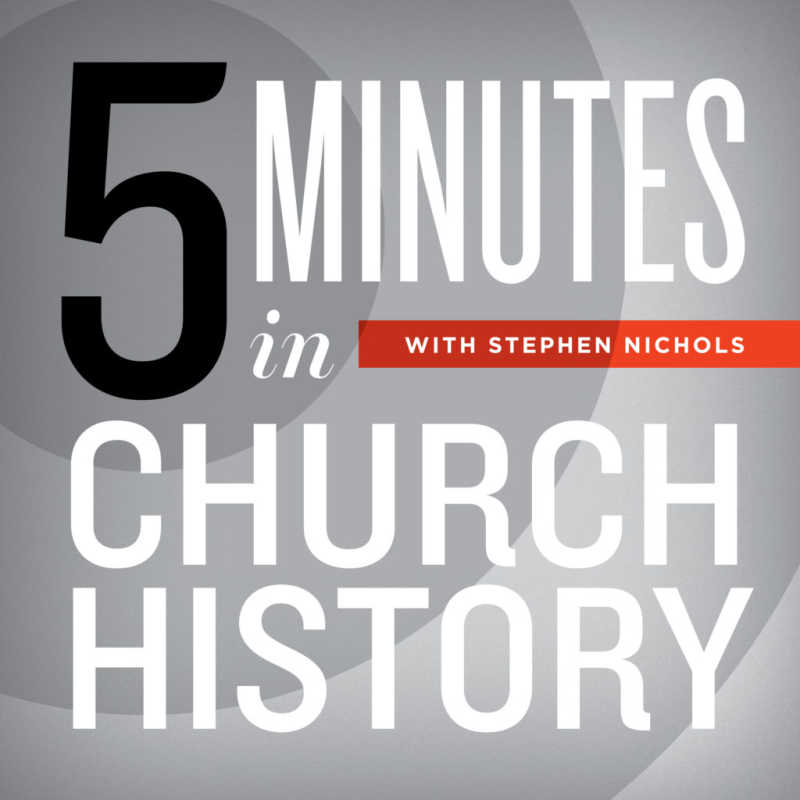
Christians around the world have been singing John Newton’s hymn Amazing Grace for hundreds of years. Today, Dr. Stephen Nichols tells us about the very first time this hymn was ever sung.
Transcript
A belated Happy New Year to you and a very happy welcome back from me to 5 Minutes In Church History. After hitting that 500th episode, we took a break. I went off to a deserted island and we spun out some of our archival episodes for you all to listen to. We also asked you to send in your suggestions and many of you did. I'm grateful for it, and be listening throughout the year, as I will be following up on many of those suggestions. In fact, today's episode is owing to listener Tom and a suggestion he sent into us.
On January 1, 1773, at St. Peter and St. Paul Church in Olney, the congregation there sang a hymn for the first time, that was composed by their pastor. The pastor was none other than John Newton and the hymn in question is indeed, “Amazing Grace.” That hymn, that has crisscrossed the globe and found its way into the hearts of Christians for the last 250 years. That hymn in its sheet music and recordings, actually occupies a rather large space in the Library of Congress. It came to be the title of a major motion picture in 2007. It's sung at funerals for dignitaries and celebrities, and it is sung in rural clapboard churches. It is accompanied by the world's most prestigious organs, by bagpipers, and by acoustic guitarists. It is in fact, the story of John Newton, “Amazing Grace,” and it's probably not too much of a stretch to say, it's actually the story of all of these figures and events that we talk about in church history. Church history is the story of God's amazing grace.
Well, that hymn debuted, as we said, on January 1st, 1773. We have Newton's diary and his records of that very day. And in his diary, he wrote, “This is the ninth New Year's day I have seen in this place. I have reason to say the Lord crowns every year with his goodness. The entrance of this new year finds me and my dear Mary, in health and peace. It is given to me to trust in the Lord Jesus for life and salvation. I know He is both willing and able to save. Upon Him as an all-sufficient savior, and upon His word of promise, I build my hope, believing that He will not suffer me to be put to shame.” Newton continues, “My exercise of grace is faint. My consolation small. My heart is full of evil. But, my eye is to Jesus. His I am. Him I desire to serve. To Him, I this day, would devote and surrender myself anew. Oh Lord, accept, support, protect, teach comfort, and bless me. Be thou my arm, my eye, my joy and my salvation.”
We also have his sermon notes from the sermon he preached that New Year's Day he chose as his text, 1 Chronicles 17:16-17. These two verses show David's humility, in his prayer, after the Lord gave him the Davidic Covenant, that promise that the Davidic throne shall stand forever. And of course, we know that that promise was of the Davidic king to come, of Christ himself. The verse reads, “Who am I, oh Lord God? And what is my house, that you have brought me thus far?” In his sermon notes, Newton says, “Who am I? This question should be always upon our minds. What was I, when the Lord began to manifest His purposes of love”
Well, going back to his diary, the curious thing is that Newton doesn't even mention the singing of the hymn. But I do think that hymn was on his mind, as he sketched these closing words in his diary. And as we think of these words, I pray that they would be your prayer for this new year ahead. Newton writes, “May thy grace keep me always waiting till my appointed change shall come. And when the summons shall come, may I be enabled to rejoice in you, as the strength of my heart and my portion forever.”
That's “Amazing Grace,” 250 years old this month. And I'm Steve Nichols and thanks for joining us for 5 Minutes In Church History.